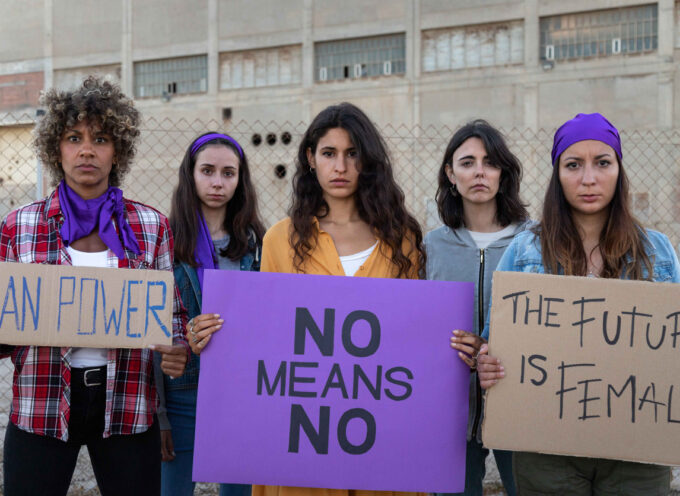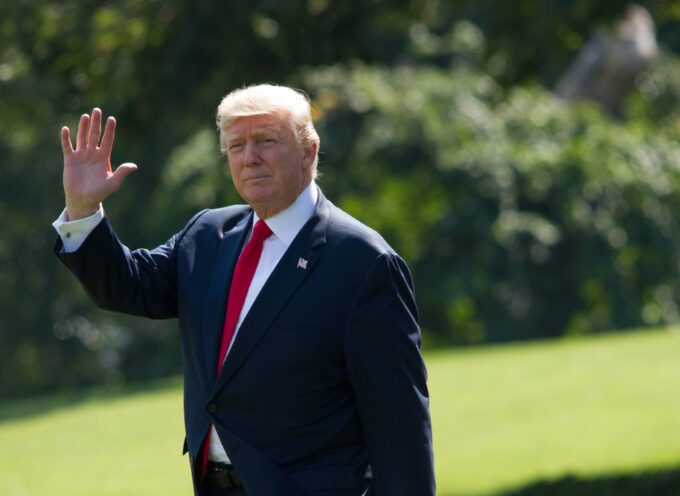In an interview with the Washington Post on August 8, Baptist pastor Robert Jeffress stated that “God has endowed rulers with full power to use whatever means necessary—including war—to stop evil,” and that “God has given Trump authority to take out Kim Jong-un.”
Is Jeffress right? Has God given President Trump the authority to “take out” Kim Jong-un? How we answer this question depends on how we answer three underlying questions.
The first question is ethical in nature. Under what conditions is the United States justified in declaring war? Historically, the majority of Christians agree that God does give governments the authority to “wield the sword” (Rom 13:4). In modern language, this means that God gives governments the right to use deadly force in order to protect its people against unjust aggression. This biblical teaching forms the basis for the “just war” tradition that has developed in the West.
The just war tradition provides guidelines for determining whether it is permissible to enter into war. Those guidelines can be articulated in the form of eight criteria.
- Just cause: a nation should not go to war unless it is correcting a specific injustice; in other words, it may not go to war to “eradicate evil” or “promote democracy.”
- Competent authority: a decision to go to war should not be made by anybody other than the person or persons who are ultimately responsible for maintaining security and civil order.
- Comparative justice: a nation must weigh whether going to war might cause more injustice than existed in the first place; a nation must not cause more injustice going to war than would be suffered not going to war.
- Right intention: a nation may not engage in war, punish or humiliate its enemies, or seek to glorify and empower itself; it may only engage in war to restore a previous state of peace in the sense of civil order.
- Last resort: a nation must exhaust all realistic nonviolent alternatives before going to war; a nation should always prefer solutions that do not involve the use of deadly force.
- Probability of success: a nation should not engage in war unless it has a realistic chance of victory; otherwise it wastes lives and resources.
- Proportionality of projected results: a nation must count the cost before going to war; if the costs of victory are more than the costs of non-engagement, the nation should not go to war.
- Right spirit: a nation must not go to war in a spirit of ideological zeal, bloodthirst, or hatred; it must engage in war with no sense of satisfaction other than that it is restoring peace, maintaining order, and protecting the innocent.
The second question is legal, and it relates to the “competent authority” criterion above. Under which conditions does President Trump have the constitutional right to declare war? The constitution is clear that Congress has the power to determine if the nation will wage war and against whom it will fight. Once Congress has decided, the President directs the war. However, in situations involving an actual imminent threat, the President can authorize military action without Congress’s approval.
The third question is prudential. Does a religious leader have any business weighing in on such matters? Just war scholar James Turner Johnson speaks for most just war thinkers when he says ethicists and competent religious leaders should weigh in on the “essential” criteria such as just cause, competent authority, and right intention, while politicians and military authorities determine the “prudential” criteria such as last resort and probability of success.
Which brings us to the question, “Has God given President Trump the authority to ‘take out’ Kim Jong-un?” Other than the fact that God has given governments the authority to protect against unjust aggressions, we can’t speak for God. The best we can do is pray for wisdom and try to apply just war principles to the situation at hand.
So, if we’re asked, we can say something like this:
“Within the parameters of the Constitution and under the guidance of the just war tradition, President Trump may authorize military action against North Korea and Kim Jong-un only if he is doing to in response to a specific unjust aggression that causes a real and imminent threat; only as a last resort after having weighed the pros and cons; only with the intention of restoring peace; and only with a spirit of great regret.”
Now, that’s a clunker of a sentence, and might not roll off the tongue very easily in a Facebook conversation or a media interview, but it expresses the reality of the situation. And if just war qualifications are ignored, and if we go to war merely to topple a dictator we think is evil, our “just” war is really an unjust crusade.
In a democratic republic such as the United States, it is our duty as citizens to be vigilant in regards to warfare. Based upon historic principles for just war, we should evaluate our nation’s potential and actual military conflicts, with an eye toward expressing our opinion to elected representatives. On the one hand, we should discourage our political leaders from playing the role of world policeman by waging war whenever we spot a humanitarian concern in another country. We are neither capable of fulfilling such a responsibility nor justified in trying to do so. On the other hand, we should support them when they protect our own country or our allies from unjust aggression. Failure to do so will weaken our country, harm our allies, and strengthen our enemies.
We should undertake this vigilance with humility, knowing that we do not ever possess a full knowledge of all the factors at stake (considering that the military and intelligence communities do not, and usually should not, make all information public). But undertake it we must, because in our great republic, “We the People” have a responsibility to support and defend the Constitution, stay in formed on the significant challenges facing our nation, and participate in the democratic process.
And we should undertake it with prayer. The apostle Paul wrote to his protégé, Timothy, “Therefore I exhort first of all that … prayers … be made for all men, for kings and all who are in authority.” (1 Tim 2:1-2). That’s a direct command, one of the few clear imperatives the Bible gives us concerning government and politics.
We should be careful, therefore, not to get so caught up in political debate that we forget to appeal to the King who rules over the world’s rulers. “A king’s heart is like streams of water in the Lord’s hand: he directs it wherever He chooses” (Prov 22:1). Rather than trusting in politicians or presidents alone, we must trust the One in whose hands they govern.
Subscribe
Never miss a post! Have all new posts delivered straight to your inbox.







